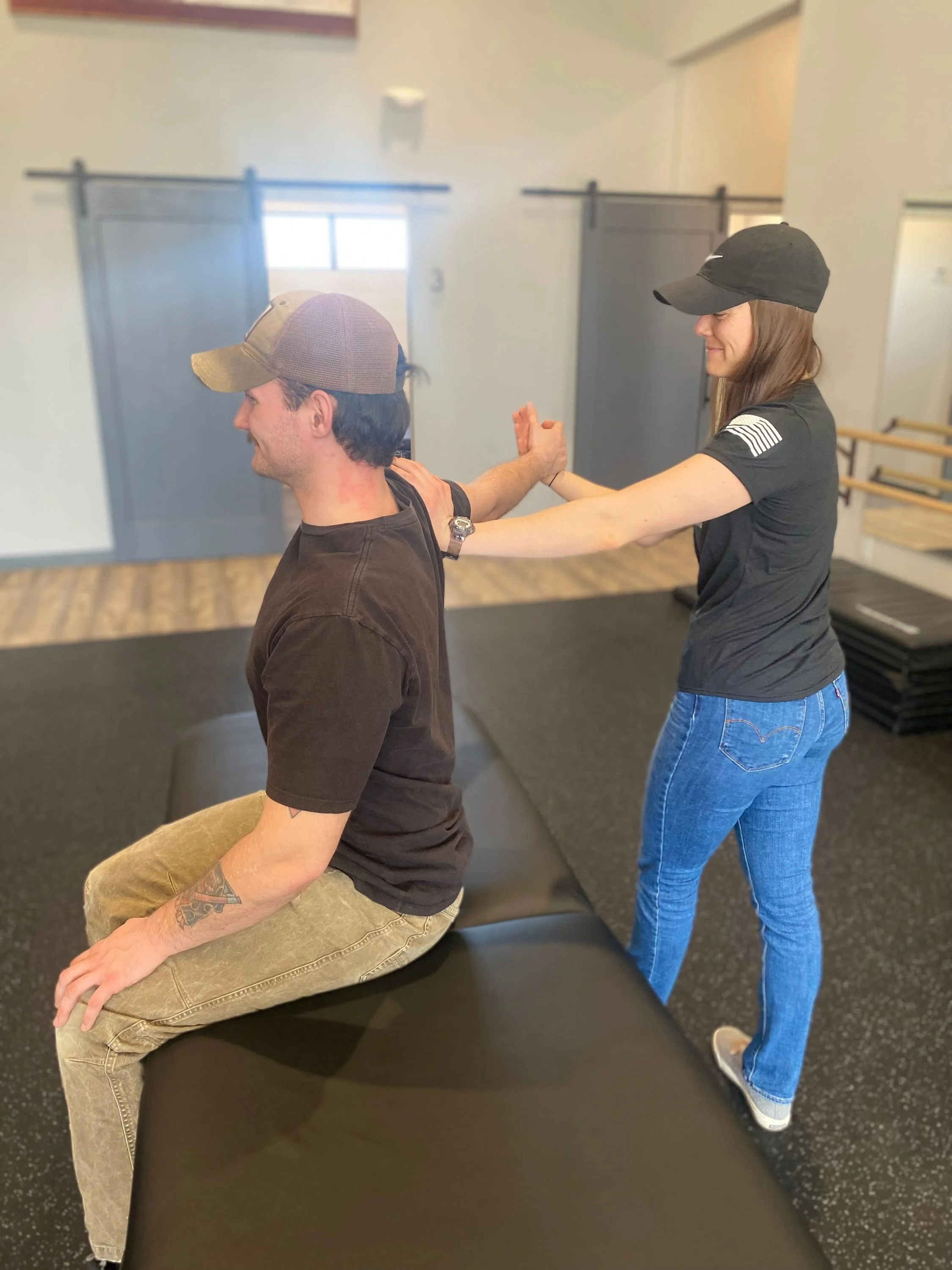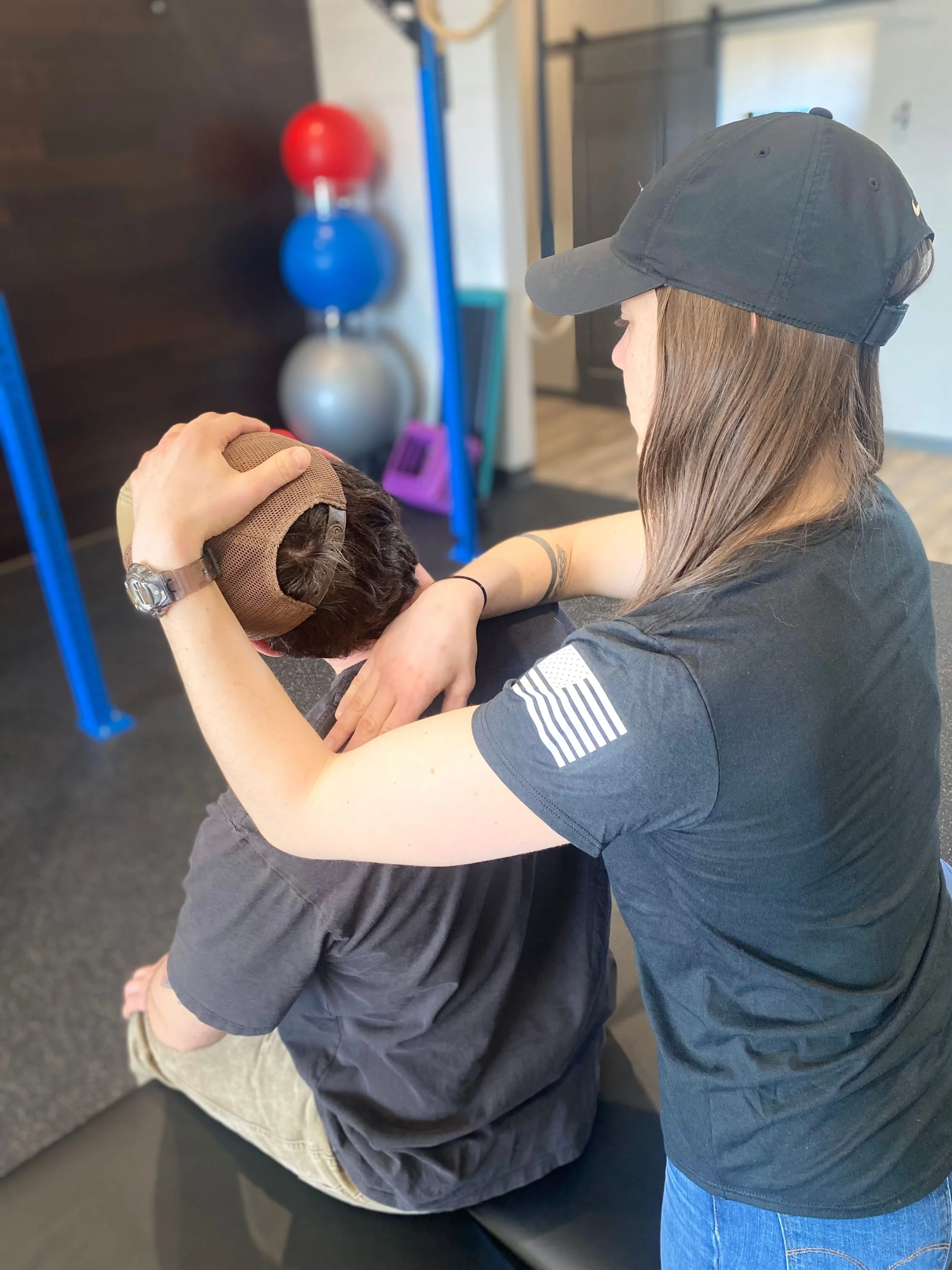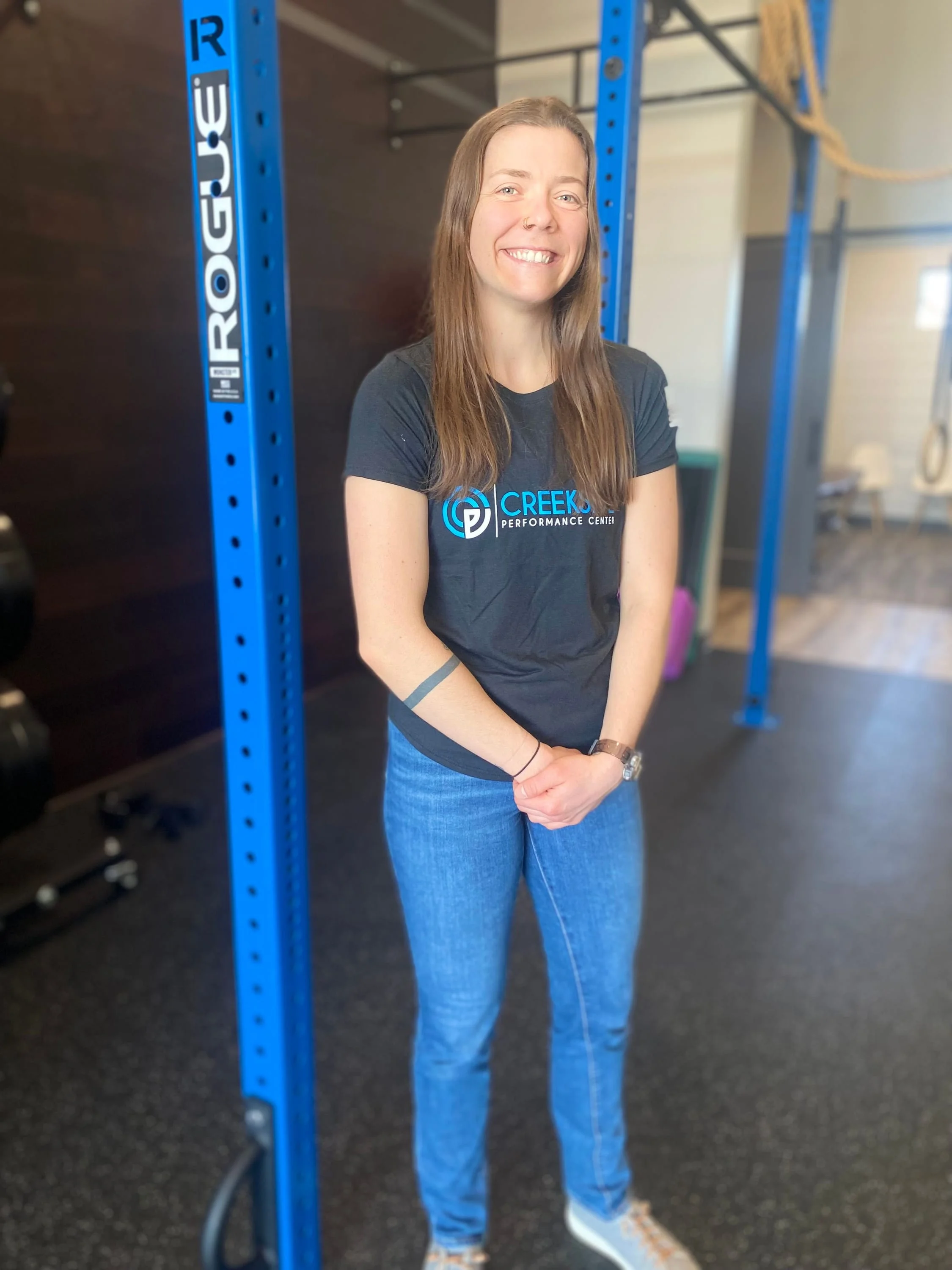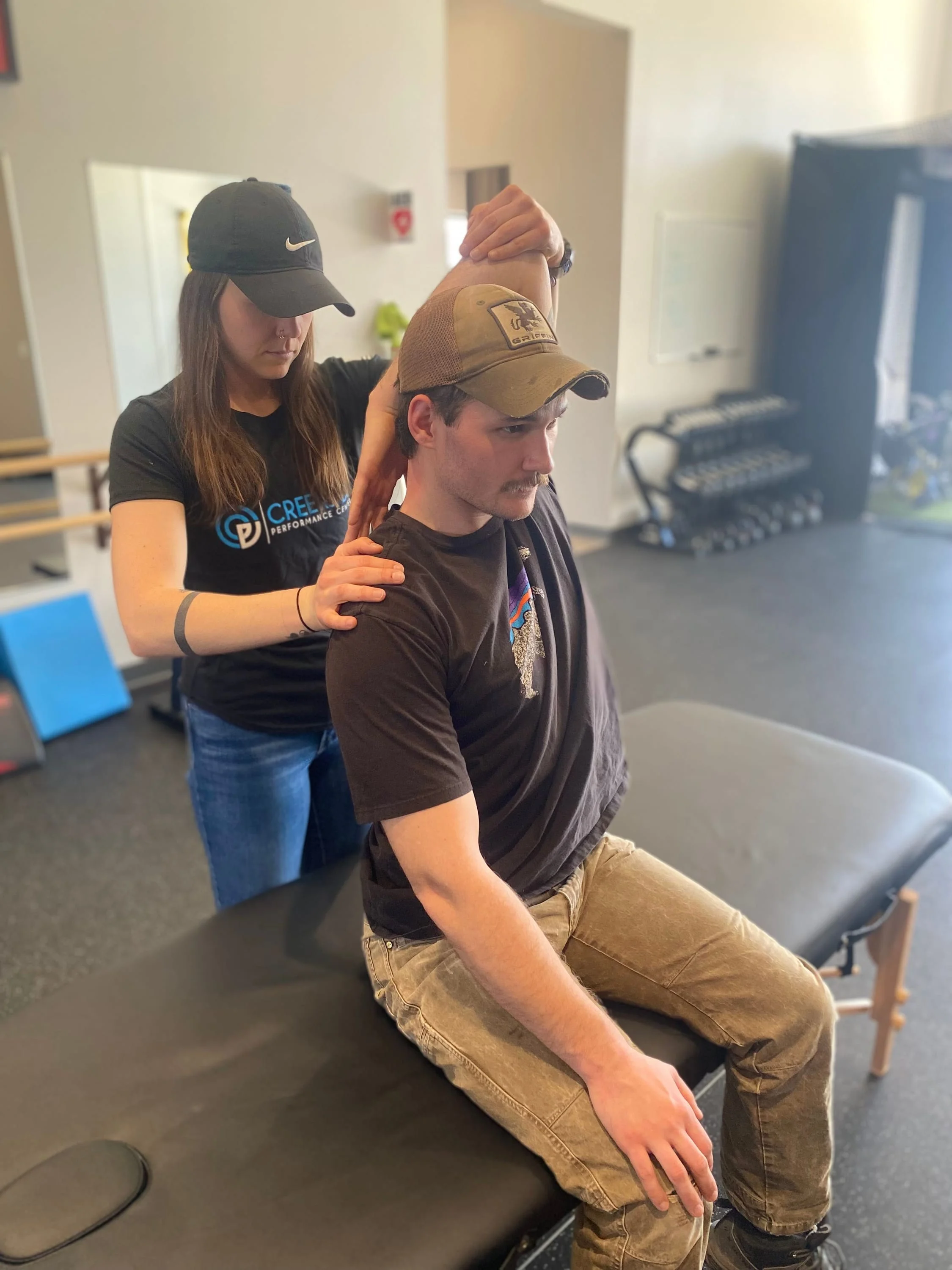Increase Range of Motion & Flexibility
Reduce Muscle & Joint Pain
Improve Sports Performance
What is Assisted Stretching?
Assisted stretching is a form of stretching that involves the use of a trained professional to help you stretch your muscles more effectively. During an assisted stretching session, your therapist will gently move your body into different positions to help lengthen and stretch your muscles. Assisted stretching can help improve flexibility, reduce muscle tension, and increase range of motion.
Who can benefit from Assisted Stretching?
Assisted stretching can benefit a wide range of people, including:
Athletes: Assisted stretching can help improve athletic performance and reduce the risk of injury.
Older adults: As we age, our muscles become tighter and less flexible, making it more difficult to move around. Assisted stretching can help improve flexibility and mobility in older adults.
People with chronic pain: Assisted stretching can help reduce muscle tension and improve circulation, which can help reduce chronic pain.
Desk workers: People who sit at a desk all day may experience tightness in their neck, shoulders, and back. Assisted stretching can help alleviate this tension and improve posture.
Assisted stretching can be a great way to improve flexibility, reduce muscle tension, and increase range of motion. If you're interested in learning more about assisted stretching or scheduling a session, call us today.
Assisted Stretch Options:
30 Minute Assisted Stretch ($40):
This session focuses on targeted areas determined by the client and can help alleviate muscle tightness. It's great for when you don't have enough time for a full body stretch and need some focused relief.
60 Minute Assisted Stretch ($75):
This session is extensive full body series of stretches that focuses on all major muscle groups, back, neck, and extremities. It's great for improving your range of motion and flexibility, while also loosening tight muscles, fascia, and easing motion into stiff joints.
Meet your Stretch Expert:
Kadieann
With a rich background in exercise, personal training, and numerous certifications, Kadieann is the perfect stretch expert for you. She brings over a year of assisted stretch experience to Creekside. She understands clients needs and tailors each session to each individual client.
What to Expect During an Assisted Stretching Session:
During an assisted stretching session, you can expect:
A consultation: Your therapist will discuss your goals and any specific areas of concern you may have.
A warm-up: Your therapist may start with some gentle warm-up exercises, breathing, and/or movements to prepare your muscles for stretching.
Assisted stretching: Your therapist will gently move your body into different positions to help lengthen and stretch your muscles.
Cool down: Your therapist may end the session with some gentle cool-down exercises or breathing.
While assisted stretching can be beneficial for many people, there are some situations where it may not be appropriate. Some of the contraindications or situations where assisted stretching should not be used include:
Acute injuries: If you have a recent injury such as a sprain, strain, or tear, assisted stretching may exacerbate the injury and delay the healing process. It's best to wait until the injury has fully healed before starting an assisted stretching program.
Osteoporosis: People with osteoporosis have weak bones that are more prone to fractures. Assisted stretching may put too much stress on the bones and increase the risk of fractures.
Joint instability: Assisted stretching involves moving the joints through a range of motion. If you have joint instability or hypermobility, this can increase the risk of injury.
Spinal conditions: If you have a spinal condition such as herniated discs or spinal stenosis, certain types of assisted stretching may not be appropriate. It's important to consult with your healthcare provider before starting an assisted stretching program if you have a spinal condition.
Pregnancy: Pregnant women should avoid certain types of assisted stretching that involve deep twisting or bending of the spine. It's important to consult with your healthcare provider before starting an assisted stretching program during pregnancy.
Joint Replacement: Care around replaced joints such as hips or knees is important. Consult with your healthcare provider or orthopedist before starting an assisted stretching program.
If you have any of the above conditions or are unsure if assisted stretching is right for you, it's important to consult with your healthcare provider before starting a program. Your healthcare provider can help determine if assisted stretching is safe for you and can recommend any modifications or adjustments to the program to ensure your safety.
Frequently Asked Questions about Assisted Stretching:
Q: Is assisted stretching painful?
A: No, assisted stretching should not be painful. Your therapist will work with you to find a comfortable range of motion for each stretch.
Q: How long does an assisted stretching session last?
A: Assisted stretching sessions can vary in length, our sessions include a 30 and 60 minute option.
Q: Do I need to bring anything to my assisted stretching session?
A: No, you don't need to bring anything to your session. Your therapist will provide any necessary equipment.
Q: What should I wear to my assisted stretching session?
A: You should wear comfortable, loose-fitting clothing that allows for a full range of motion.
Q: How often should I have assisted stretching sessions?
A: The frequency of your assisted stretching sessions will depend on your individual needs and goals. Your therapist can help you develop a schedule that works for you.
Q: Is it covered by insurance?
A: Assisted stretching is not covered by insurance.
Q: Do you offer memberships?
A: We do not offer memberships.
Q: Is it customary to tip my stretch expert?
A: We see tipping as a show of gratitude for services rendered. It is never expected, always appreciated. In the end it's always up to the customers discretion based upon level of service provided.





